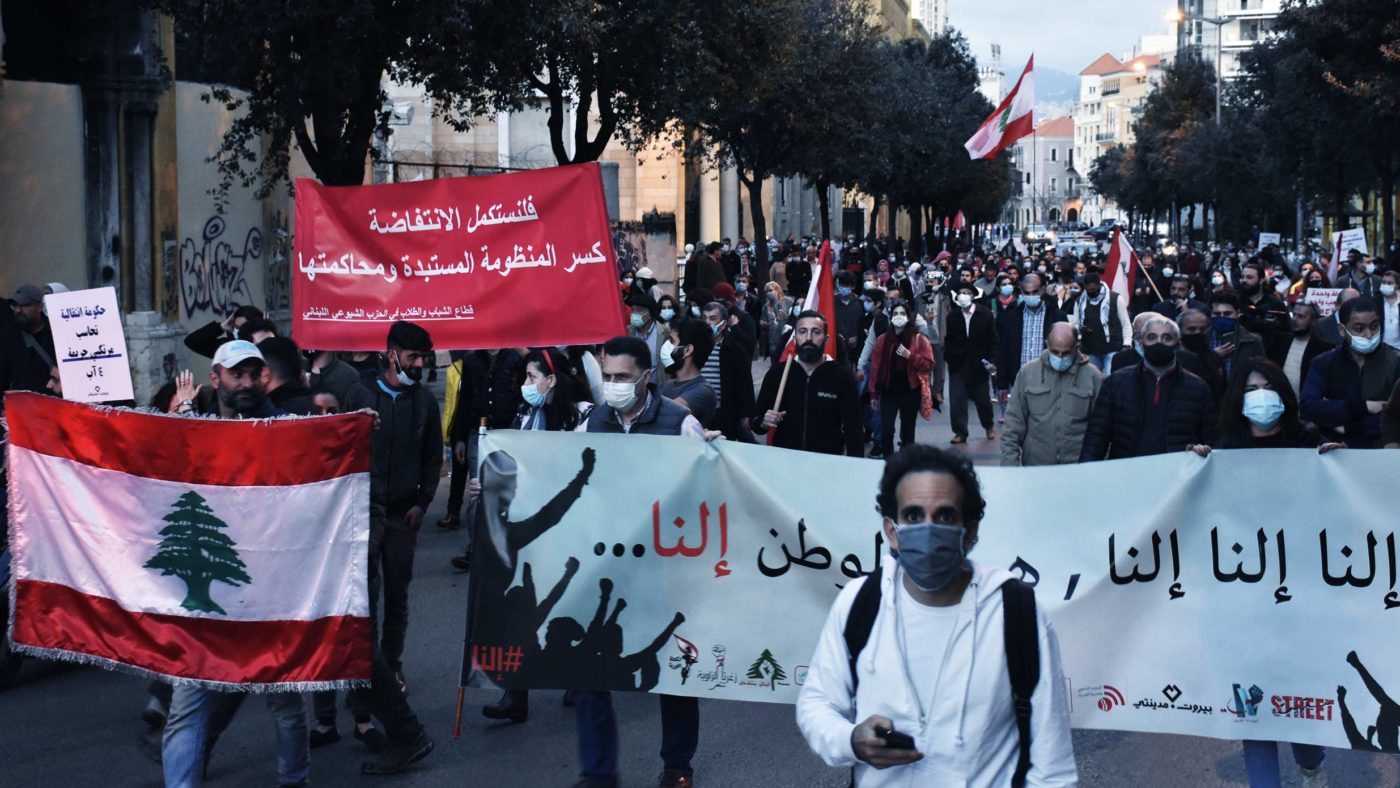Tomorrow marks one year since Lebanon requested a financial bailout from the International Monetary Fund. The IMF didn’t demand a pound of flesh for its assistance; instead, it asked for accountability and reform – something the people of Lebanon, myself included, have long sought.
A year later, the coronavirus pandemic and last August’s explosion in the port of Beirut have squeezed the remaining life out of Lebanon’s economy. During this unprecedented period, Lebanon’s political class has remained as divided, self-serving and incompetent as ever. Facing a financial crisis and the worst pandemic in living memory, partisan and sectarian interests have stymied all attempts to form a government and implement the most basic reforms. Reforms needed to unlock the life-saving aid Lebanon desperately needs.
As the IMF returns to the negotiating table with the Lebanese government, now more than ever, they must stand firm. Lebanon needs to reform because its political elite lacks the will to change. If the IMF and international donors waiver, nothing will ever change; all the pain my fellow countrymen have experienced over the past few years will be for nothing.
There is no quick fix for an economy in freefall, with inflation at record levels and half of the population living below the poverty line. However, there are clear steps Lebanon must take if it hopes to find a lasting solution to the problems we face. The IMF and international donors remain the last hope for reform, but only if they stand firm and demand change.
First and foremost, the political elites must set personal and partisan interests aside to allow for the formation of an empowered technocratic government. Lebanon does not need more of the same. It requires a government free from sectarian and partisan interests, whose sole purpose is to enact constitutional reform that does away with the sectarian dogma plaguing Lebanon’s body politic. Only a government free from sectarian and partisan interest can purge the system of the vested interests and corrupt officials that have strangled Lebanon to date.
A framework for such a government already exists. However, unless institutions like the IMF force change, and demand the full implementation of the 1989 Taif Agreement, the sectarian dogma that has hamstrung the formation of a Lebanese government for the past year will hamper any attempt at future reform.
Only in Lebanon can the interests of the privileged political elites take precedence over the state’s interests. Worse still, whilst the political elites have presided over this growing disaster, Hezbollah has slowly cemented its control over swathes of Lebanon. Hezbollah has long represented a clear and present danger to the country, but now more than ever it must be disarmed and dismantled, freeing the government from a poisonous “state within a state”.
Just last week, Reuters warned that Hezbollah was preparing for the total collapse of the Lebanese state. The same terrorist group that has played a pivotal role in stopping attempts to form a government is now preparing to benefit from the demise this has caused. Yet even knowing this, the political establishment has failed to act. They have been unable to enact anything close to what the IMF asked for last year. Cap in hand, the Lebanese political establishment has returned to the table in the vain hope they can still get a bailout and protect the status quo.
The sad truth is that Lebanon is a failed state. Decades of fiscal irresponsibility, corruption and nepotism have robbed the Lebanese people of a once bright future. Nothing short of wholesale change will address those underlying problems.
Now more than ever, Lebanon needs a non-confessional constitution that gives everyone – regardless of who they are or where they were born – the opportunity to be heard. This is the best hope we have to start addressing the economic problems that we face to build a new Lebanon for us and the future generation.
Basic economic confidence – the cornerstone of any economy – is so totally lacking that Lebanon will remain in peril even with a cash injection. Yet the ruling class still lets tribal and sectarian interests dictate the political landscape.
Change is coming. Reform is the only answer to Lebanon’s plethora of problems. I only hope that the change comes before it’s too late and the damage takes generations to overcome. The IMF can force reform and I hope, for the sake of my countrymen, it can stand firm. With the future of Lebanon now at stake, politicians must finally set sectarian and partisan interests aside. Lebanon needs a system that gives everyone – regardless of who they are or where they were born – the opportunity to be heard. This is the best hope we have to start addressing the economic problems that we face and to build a new Lebanon for us and future generations.
Click here to subscribe to our daily briefing – the best pieces from CapX and across the web.
CapX depends on the generosity of its readers. If you value what we do, please consider making a donation.


